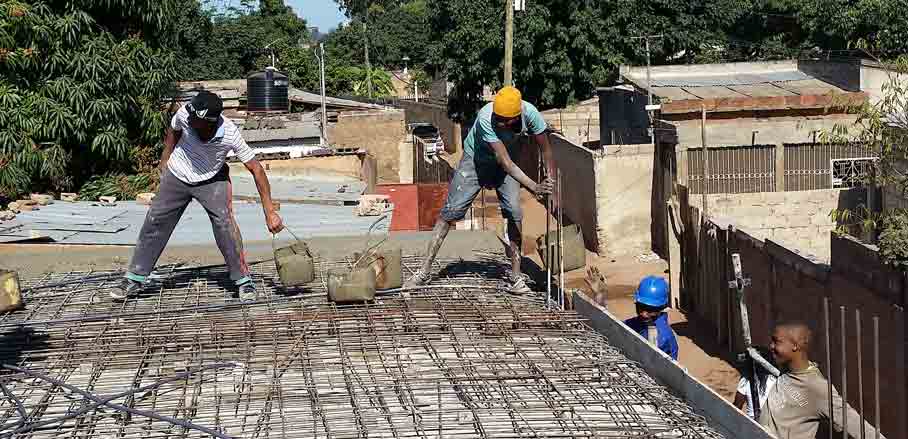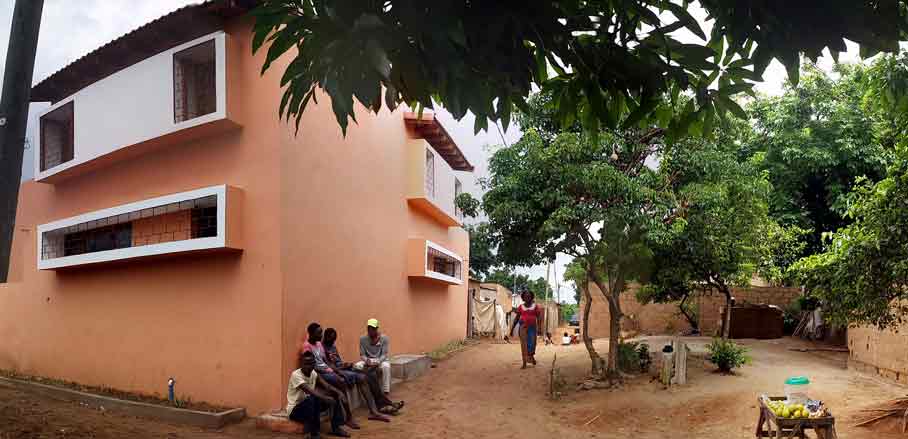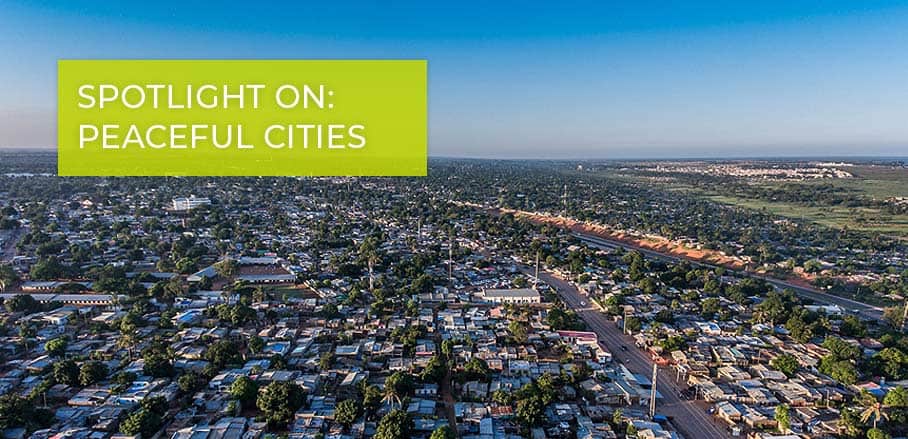Casa Minha Nosso Bairro: Inclusive Urban Development in Maputo, Mozambique
Projects aimed at the upgrading of settlements often face the question of how to increase living standards for all residents – while keeping housing costs at a level affordable for the original population. The initiative “Casa Minha Nosso Bairro” takes an innovative approach towards this issue, aiming at living conditions that nurture a peaceful living environment for all urban residents.
Urban Development in Maputo
The rapid urban development of Maputo has caused investment in the construction sector to grow exponentially, with the investment being focused on the luxury sector. Accessibility, infrastructure, land scarcity, and the urge for economic growth have created dynamics of speculation, gentrification, and unpopular resettlements. These dynamics are pushing people to the peripheries of the metropolitan area: both the growing urban population and poor people from the countryside who are attracted by the city’s opportunities. This results in an expanded and low-density city – most of its dwellers being in a vulnerable position, as they often live in informal settlements far away from employment opportunities.
Living Conditions in Polana Caniço
The neighbourhood Polana Caniço, situated only three kilometres from the city centre, is currently in the midst of a process of change. This central area of Maputo was developed mostly after Mozambique’s independence in 1975. The housing consists of self-made homes of sub-standard materials. Most are built from a mix of concrete blocks and iron sheets that create spaces of compromised security and extreme temperatures; very few possess internal bathrooms. There are almost no two-storey houses, meaning that the population density is relatively low and the original planning is being lost due to lack of public investments and maintenance.
All these factors make for poor living standards in the neighbourhood. The living conditions of Polana Caniço, where people live far below housing standards and have no access to proper infrastructure, are contrasted by Sommerschield II, with blooming luxurious villas right next to Polana Caniço.
Polana Caniço has been the subject of various research and project proposals during the last decade. This is due to its location close to the city centre, the high-standard neighbourhood of Sommerschield II, and a general focus on urban planning in recent years. Two questions arise: how can two such different realities co-exist so close to each other without conflicts? How can residents participate and benefit from the transformation that is already happening?
Casa Minha Nosso Bairro
It was in this context that the private initiative “Casa Minha Nosso Bairro” (My House Our Neighbourhood) proposed an innovative project that envisions a new form of urbanism in Maputo: an urbanism-for-all.
Many projects that were proposed for Polana Caniço prior to Casa Minha’s initiative struggled to be implemented as they failed to acknowledge an important reality: that the project area is already occupied by people who, disregarding their levels of income, consider this neighbourhood their home.
A New Approach to Densification
Casa Minha had a different idea. The small group of architects and engineers approached residents with a concept that ensured that no forced resettlements would occur and that would place those residents who agreed to be a part of the requalification at the centre of the transformation process.
The basic concept was simple: replace one household’s one-storey house with two, well-designed two-storey houses – on the same plot of land. Thus, in exchange for sharing their plot, the respective families are provided with a newly-built house. The second house is put on the market to finance the operation.
This process would allow the neighbourhood’s original population to remain there, renovate the neighbourhood, and create new housing opportunities close to the city centre for a young urban middle class desperately seeking affordable housing solutions.

© Casa Minha Lda.
Inclusive Urbanisation and Job Creation
One of the most important dimensions of the project is the idea of inclusive urbanisation: the idea that the opportunities and economic growth of a city should be available to all segments of society. While Maputo so far falls short of that, Casa Minha constitutes one step toward that ideal.
A key to successful inclusive development is the combination of affordability and employment creation. Through smart design and local sourcing of materials and labour, the prices of the new houses constitute the lowest levels of the housing market, ensuring affordability.
In addition, by partnering with the local communities and the municipality, Casa Minha will be in a position to propose the creation of new public spaces and upgrading of streets. Thus, the initiative can be an effective tool of employment creation: labour intensive methods create additional jobs, and thus income, for the young people in the community.

© Casa Minha Lda.
A Model of Spatial Transformation
Casa Minha is proposing a solution for a common problem in Maputo as it upgrades low-standard housing while avoiding their replacement by unaffordable, profit-oriented housing. Its long-term goal is to become a sustainable model of spatial transformation that enjoys the trust of local communities and investors alike. Eventually this could become a model to be applied to other urban areas with similar characteristics as Polana Caniço.
The project is currently in its demonstration phase and has built seven houses. It is in a market testing phase and is already showing positive impacts.
Casa Minha’s business model strongly relies on an inclusive approach—involving residents as a part of the requalification process will change perceptions, it will transform foreigners into neighbours and residents into business partners – all of them sharing the ambition for a better city.
- Casa Minha Nosso Bairro: Inclusive Urban Development in Maputo, Mozambique - 8. November 2018
